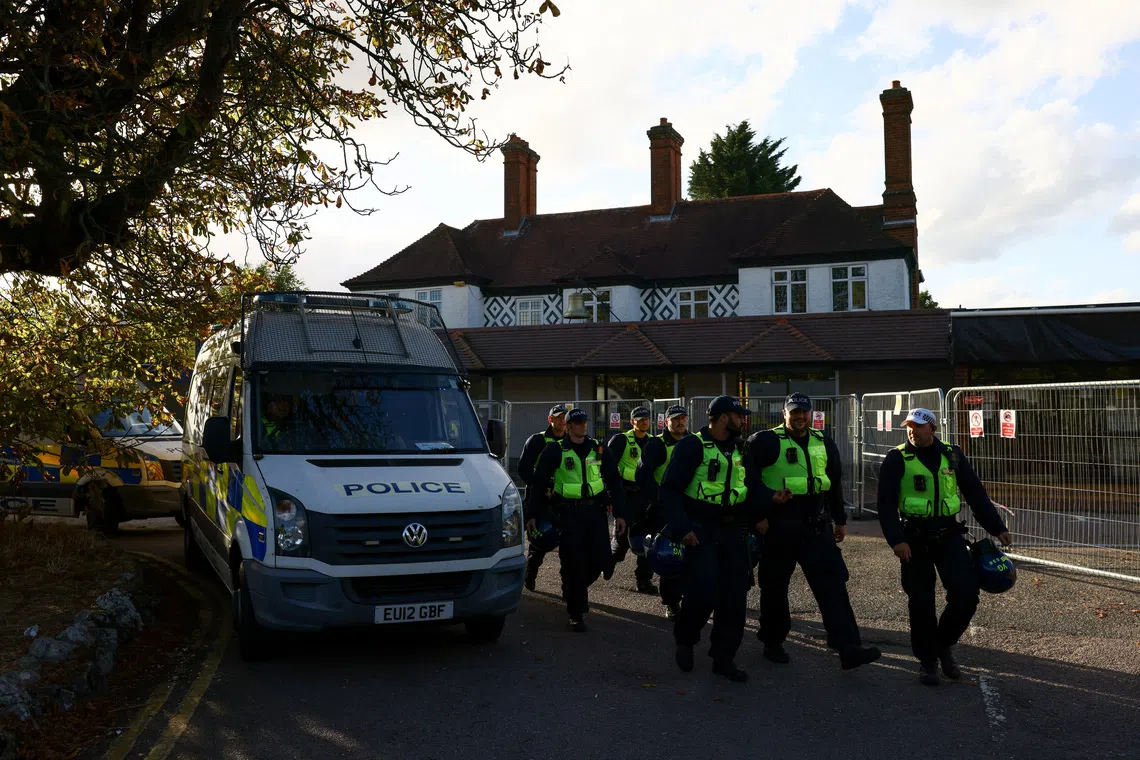Britain to criminalise protests outside homes of public officials under new law
Sign up now: Get ST's newsletters delivered to your inbox

Britain's police will be given powers to stop demonstrations aimed at influencing officials in their public duties or private lives.
PHOTO: REUTERS
Follow topic:
LONDON - Britain will introduce a new criminal offence banning protests outside the homes of elected officials, judges and local councillors, as part of wider efforts to curb harassment and intimidation in politics.
Under the Crime and Policing Bill, police would be given powers to stop demonstrations aimed at influencing officials in their public duties or private lives, the government said on Nov 4. Those convicted could face up to six months in prison.
“The level of abuse faced by those taking part in British politics is truly shocking – it’s a threat to our democracy,” Mr Dan Jarvis, minister of state for security, said in a statement.
“People should be able to participate in our politics without fearing for their own or their family’s safety.”
A parliamentary survey found that 96 per cent of British lawmakers had experienced harassment, while an independent body that oversees elections in Britain said more than half of candidates in the last general election faced threats or intimidation.
Before winning the election in 2024, the now Prime Minister Keir Starmer was targeted, when pro-Palestinian activists left children’s shoes and a banner outside his London home, urging him to back an arms embargo on Israel.
In 2023, the then prime minister Rishi Sunak faced protests from climate activists outside his London and North Yorkshire residences.
The government said the Bill would also introduce new offences targeting protest tactics, including bans on climbing war memorials, using flares or fireworks, and wearing face coverings to conceal identity in designated protest zones.
Ministers say the measures are designed to protect democratic institutions and ensure public safety, while critics warn they could further restrict the right to protest.
The Crime and Policing Bill is currently progressing through parliament and due to receive royal assent next year. REUTERS

